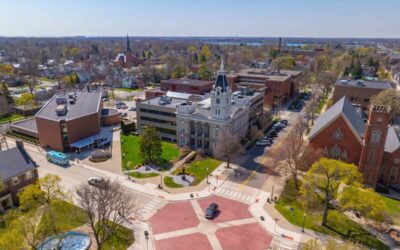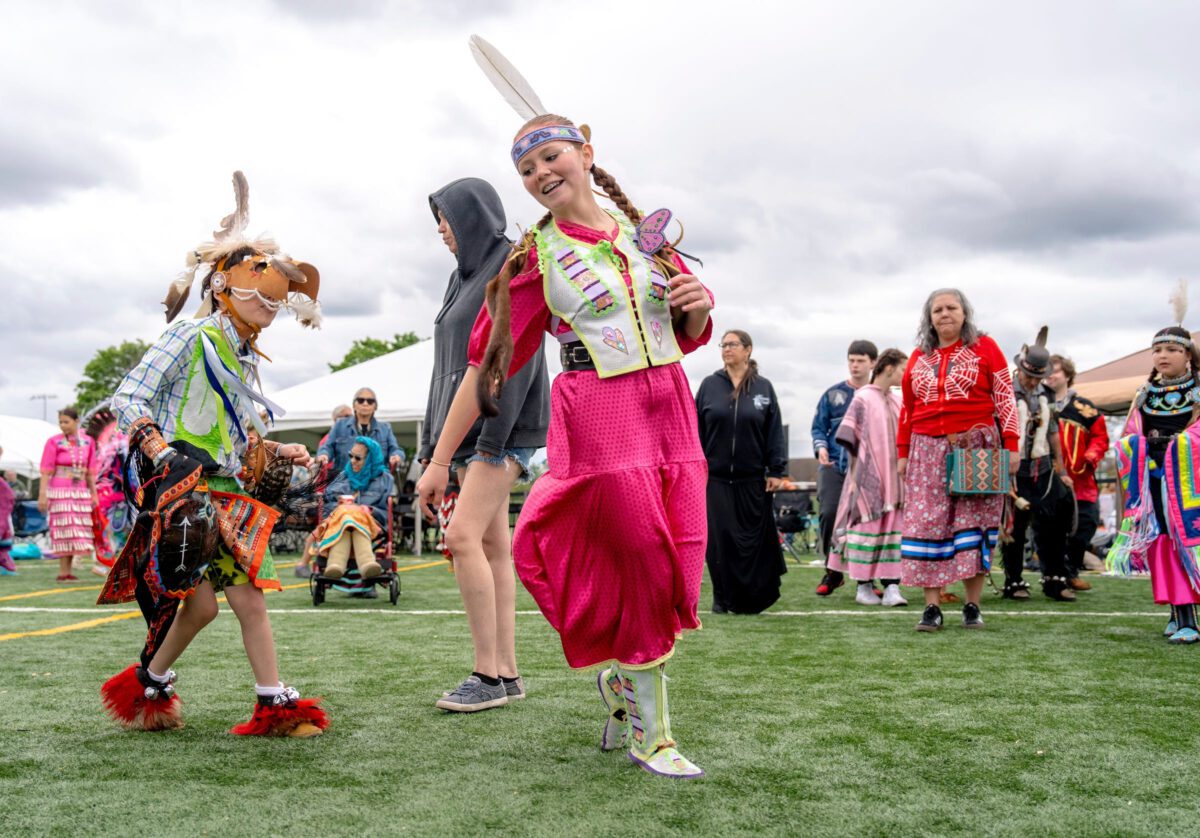
Sault Tribe of Chippewa Indians member Arrow Hatch, left, of Sault Ste. Marie, chases after Bay Mills Indian Community member Kendreya Teeple during an intertribal dance open to everyone as they move clockwise in the dance circle during the "Pow Wow in the D" event put on by the American Indian Health and Family Services at Wayne State University Intramural Field in Detroit on Saturday, May 17, 2025. (USA TODAY Network)
Communities across Michigan are gathering to celebrate the state’s Indigenous roots this month as November marks Native American Heritage Month nationwide.
Present-day Michigan is the ancestral homeland of the Ojibwe, Odawa and Potawatomi, Anishinaabe peoples forming the historic Council of Three Fires alliance, with the Indigenous presence pre-dating European settlements by more than 10,000 years.
“In the 1600s, the relationship the Anishinaabek had with their homelands drastically changed with the arrival of Europeans to the Great Lakes. Diseases, wars, and the efforts to remove the Anishinaabek from Michigan continued for centuries. Despite this, the Anishinaabek fought to remain,” Sleeping Bear Dunes National Lakeshore‘s website says.
The state is now home to 12 federally recognized tribes across both peninsulas, with more than 240,000 Native American or Alaska Native residents statewide, 2.4% of Michigan’s population, according to the 2020 U.S. Census.
Gov. Gretchen Whitmer and Lt. Governor Garlin Gilchrist declared November 2025 as Native American Heritage Month in Michigan in a Nov. 1 proclamation.
“We recognize and honor the achievements of Tribal governments and Native Americans and continue our efforts to ensure the State of Michigan recognizes, upholds, and honors Tribal sovereignty and collaborates fully with Tribal governments,” the proclamation read in part.
During the month, institutions throughout the state are celebrating with activities, discussions, feasts and a powwow.
Here’s what to know this Native American Heritage Month.
How is Michigan celebrating Native American Heritage Month?
Michigan is recognizing Native American Heritage Month, with festivities and commemorative events planned across the state.
Michiganders should take this time to discover local Indigenous history, including historical and contemporary injustices, and uplift Indigenous customs, Whitmer and Gilchrist said in their proclamation.
“We celebrate the rich, diverse cultures, traditions, and histories of Native Americans, while acknowledging the significant contributions they make to government, education, economics, art, science, literature, and more in Michigan and the United States,” the proclamation read.
Here are some upcoming events to mark the month:
- Celebrate Native culture in the eastern UP: Bay Mills Community College will host events Nov. 8-30 at its campus in Brimley in the eastern Upper Peninsula. Check out a fall feast, ribbon skirt workshop, snow snake workshop, powwow, men’s hand drum workshop and more.
- Native heritage at U-M: University of Michigan has a lineup of events running until Nov. 23 at its Ann Arbor campus in southeast Michigan, including guest speakers, making frybread and other Indigenous foods, musical performances, cultural dances and more.
- Explore southwest Michigan’s Potawatomi roots: The Berrien County Historical Society will feature Indigenous studies scholar Blaire Morseau Nov. 13 at Four Winds Casino in New Buffalo in southwest Michigan, for adults 21 and above. Morseau will discuss her edited volume of a historic Potawatomi writer’s books, with appetizers and beverages provided. Tickets are $50, $65 including the book, and can be purchased online through Friday, Nov. 7.
- Embrace Native heritage at MSU: Michigan State University is celebrating with events running through Nov. 22 at and around its East Lansing campus, from Indigenous cuisines to guest speakers, Native hand drum workshop, a planetarium show and more.
- Indigenous heritage in Marquette: At Northern Michigan University in Marquette in the UP, the Center for Native American Studies will host events through Nov. 18, including Rock Your Moccasins Week, dance activities, some with refreshments, and more.
- Ann Arbor library honors Native narratives: The Ann Arbor District Library in Ann Arbor will host several events through Nov. 16, with guest speakers and Indigenous storytelling, while also highlighting Native American books and films to check out.
- CMU celebrates Native heritage: The Office of Indigenous Affairs at Central Michigan University in Mount Pleasant is hosting events through Dec. 1, including guest speakers, painting, Bodewadmi language Bingo, a panel and solidarity walk on the Missing and Murdered Indigenous people crisis, moccasin games and more.
Is Michigan a Native American name?
Yes, Michigan is of Native American origin.
The name of the state is attributed to the Algonquin word “Mishigamaw,” meaning “big lake” or “great water,” deriving its name from the lake of the same name. It’s also said to be from “Michi” meaning “great” and “Gama” meaning “water,” the Bureau of Indian Affairs says.
Who are Michigan’s Native American tribes?
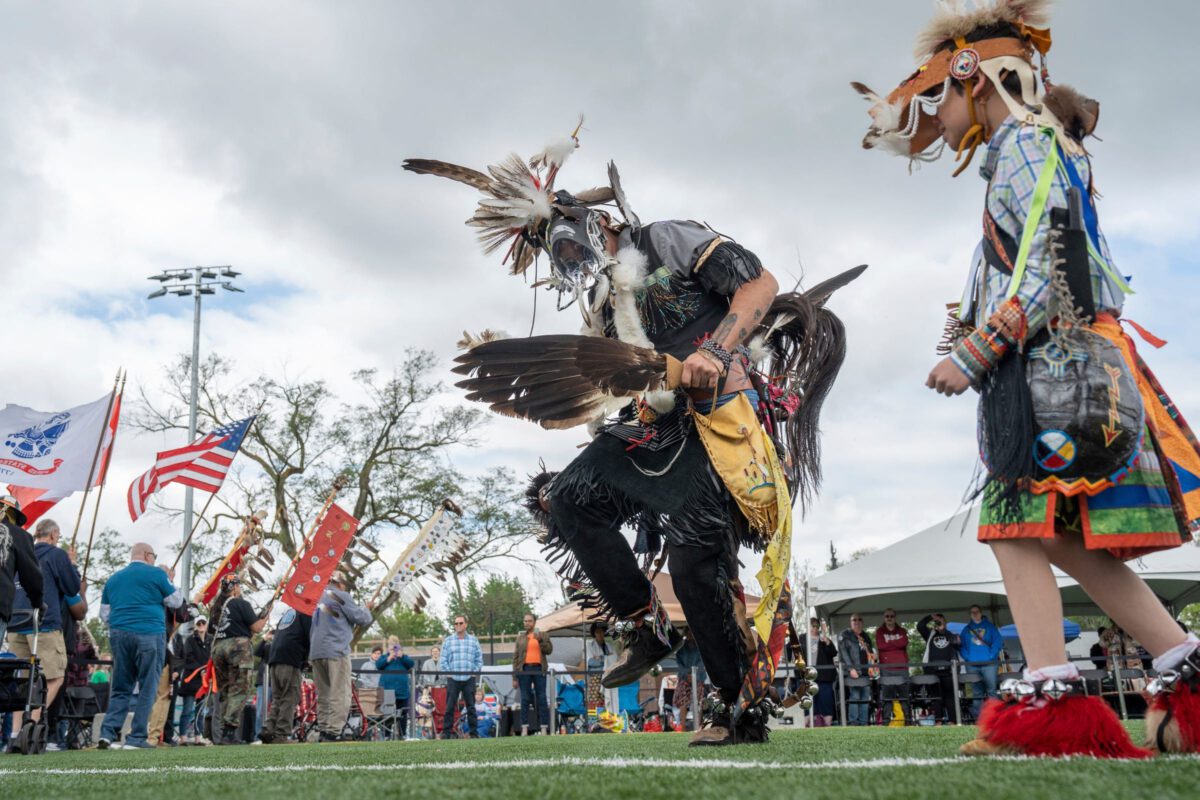
Sault Tribe of Chippewa Indians member Mike Hatch, center, of Sault Ste. Marie, dances with his son Arrow Hatch, while taking part in the opening procession during the annual “Pow Wow in the D” put on by the American Indian Health and Family Services at Wayne State University Intramural Field in Detroit on Saturday, May 17, 2025. (USA TODAY Network)
Indigenous communities in Michigan include the following 12 federally recognized tribes:
- Bay Mills Indian Community
- Grand Traverse Bay Band of Ottawa and Chippewa Indians.
- Hannahville Indian Community
- Keweenaw Bay Indian Community
- Lac Vieux Desert Band of Lake Superior Chippewa Indians.
- Little River Band of Ottawa Indians.
- Little Traverse Bay Bands of Odawa Indians.
- Match-e-be-nash-she-wish Band of Potawatomi Indians of Michigan (Gun Lake).
- Nottawaseppi Huron Band of the Potawatomi Indians.
- Pokagon Band of Potawatomi Indians.
- Saginaw Chippewa Indian Tribe.
- Sault Ste. Marie Tribe of Chippewa Indians.
When is Native American Heritage Month?
Native American Heritage Month is in November.
How did Native American Heritage Month come about?
Efforts to recognize Native Americans began with American Indian Day in 1915, according to the Library of Congress. Decades later, President George H.W. Bush designated November as National American Indian Heritage Month in 1990.
Where can you discover Michigan’s Indigenous origins?
In mid-Michigan’s Mount Pleasant, the Ziibiwing Center of Anishinaabe Culture & Lifeways features exhibits, a research center of historical archives, museum tours, meeting spaces, gift shop, events and more. The museum and cultural center is run by the Saginaw Chippewa Indian Tribe of Michigan and highlights the tribe’s history and culture, along with other Great Lakes Anishinabek peoples, per the center.
Sanilac Petroglyphs Historic State Park in Cass City in the Thumb offers a glimpse of ancient Native American rock carvings known as petroglyphs. The 240-acre park also includes a 1-mile walking trail, remains of a 19th century logging camp and a 110-year-old white pine tree, according to the Michigan History Center.
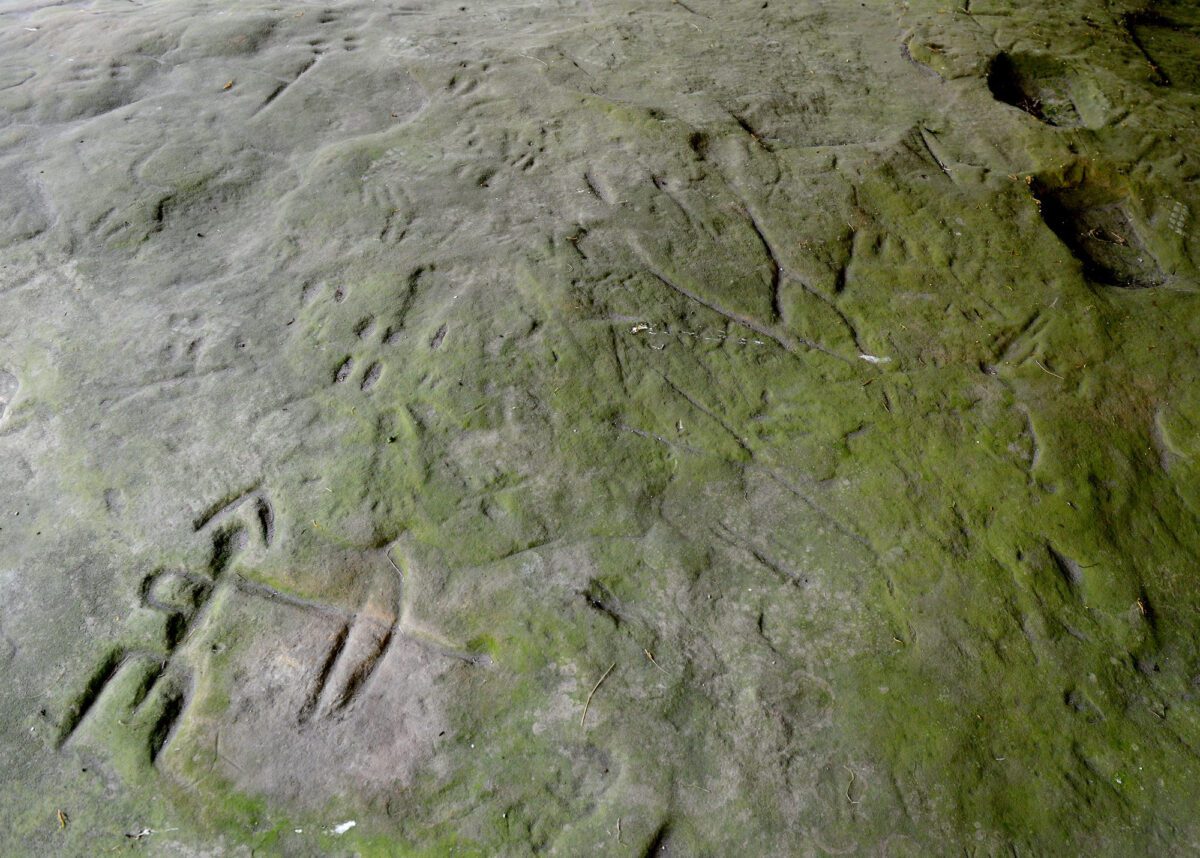
Perhaps the most famous of the carvings is Ebmodaakowet, the archer who shoots knowledge into the future, pictured with the other carvings on thepetroglyphs at the Sanilac Petroglyphs Historic State Park May 24, 2016, in Cass City, Michigan. The petroglyphs, or ezhibiigaadek asin or “written in stone” in the Anishinaabemowin, the Ojibwa language, were carved 600 to 1,000 years ago, according to William Johnson, curator for cultural research management at the Ziibiwing Center, a museum and learning facility operated by the Saginaw Chippewa Tribe in Mount Pleasant. (USA TODAY Network)
In the western Upper Peninsula, the Potawatomi Heritage Center in Wilson, part of the Hannahville Indian Community, showcases the Potawatomi tribe’s culture and history, including with photos and historic artifacts. The museum is open 8 a.m. to 4 p.m. Mondays to Fridays.
At the UP’s eastern edge in Sault Ste. Marie, the Baaweting Anishinaabe Interpretive Center and Resource Library of the Sault Ste. Marie Tribe of Chippewa Indians displays cultural artifacts contributed by tribal members along with interpretations of the objects’ significance. The center doesn’t yet have set hours of operation.
Additional museums displaying Indigenous history can be found across Michigan.
How can you celebrate this month?
If you’re looking to explore your Native American roots or simply learn more, here are some ways to start this month:
- Make a family tree of your Indigenous ancestors
- Visit a local Native American museum
- Learn Anishinaabemowin language
- Read a book or watch a film, TV show or documentary about Michigan’s tribes
- Check out Native American art exhibits
- Cook a dish from a local tribe’s cuisine
- Shop at a Native-owned business
This article originally appeared on Detroit Free Press: Celebrating Native American history. What to know in November
Reporting by Jenna Prestininzi, Detroit Free Press / Detroit Free Press
USA TODAY Network via Reuters Connect
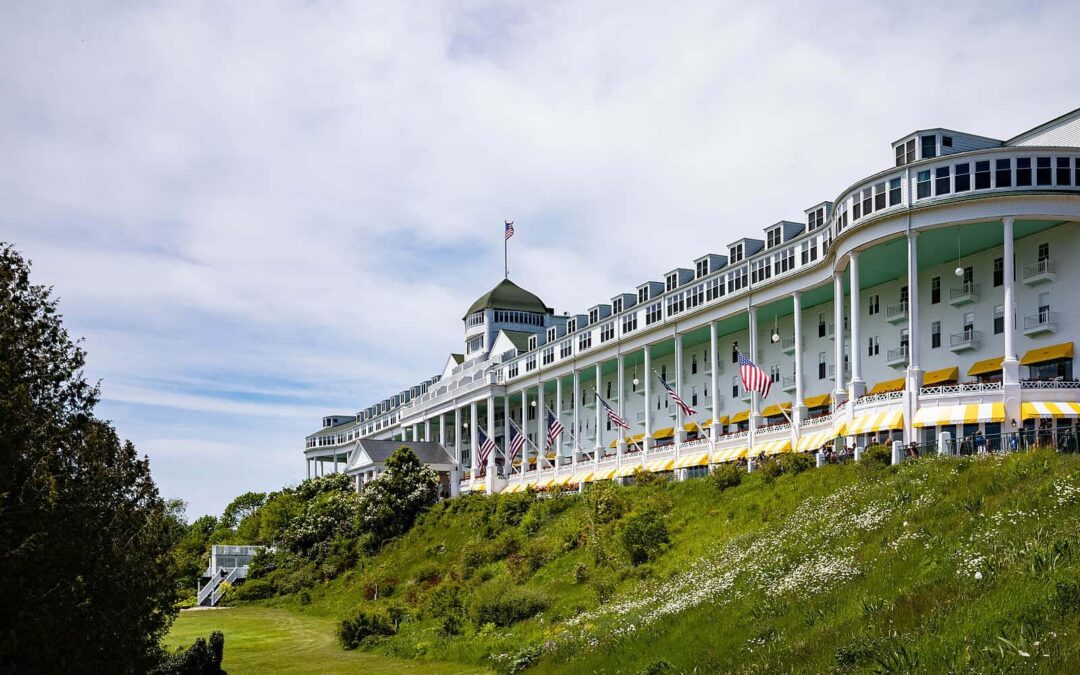
9 Michigan-made world records that will make you proud to call our state home
Searching for proof that Michigan is world-class? Look no further than our roundup of Guinness world records held by Michiganders and the Mitten...

Michigan’s reality TV stars: Where are they now?
From the “Real World” to “Real Housewives,” here are 10 reality stars from Michigan and what they’re up to now. As a lifelong Michigander, I love...

Viral ‘6-7’ tops 2025 list of overused words and phrases
Respondents to an annual Michigan college survey of overused and misused words and phrases say " 6-7 ” is “cooked” and should come to a massive...
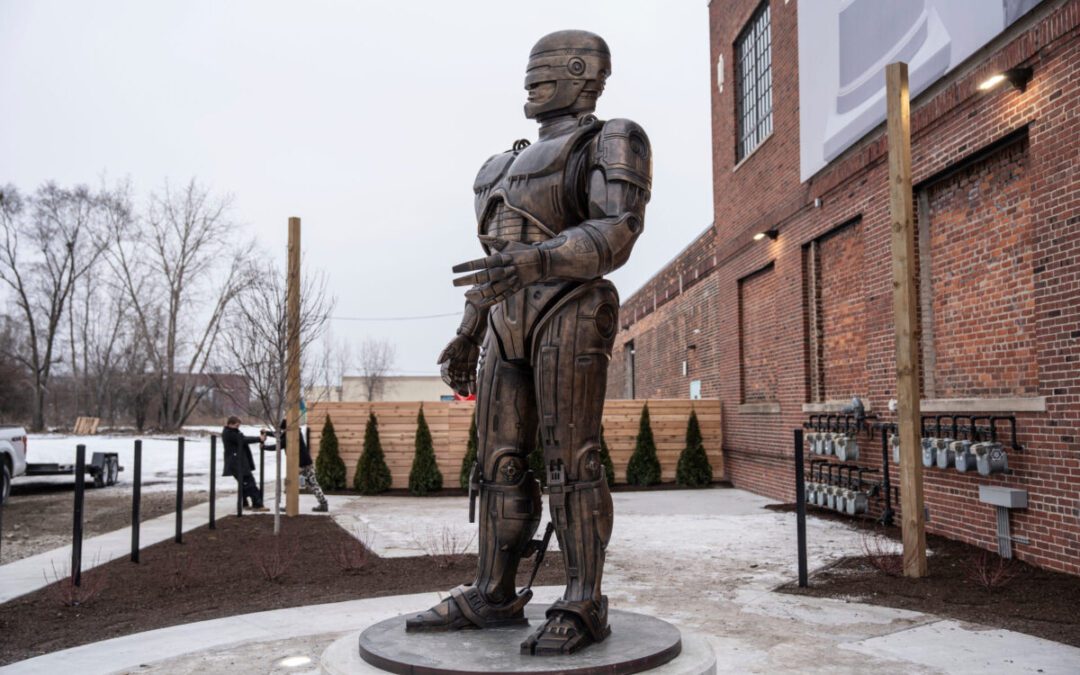
RoboCop statue stands in Eastern Market 15 years after viral tweet
Attention, citizens: RoboCop is officially on patrol. After nearly 15 years of planning, casting, fits, starts, snags and delays, Detroit's RoboCop...
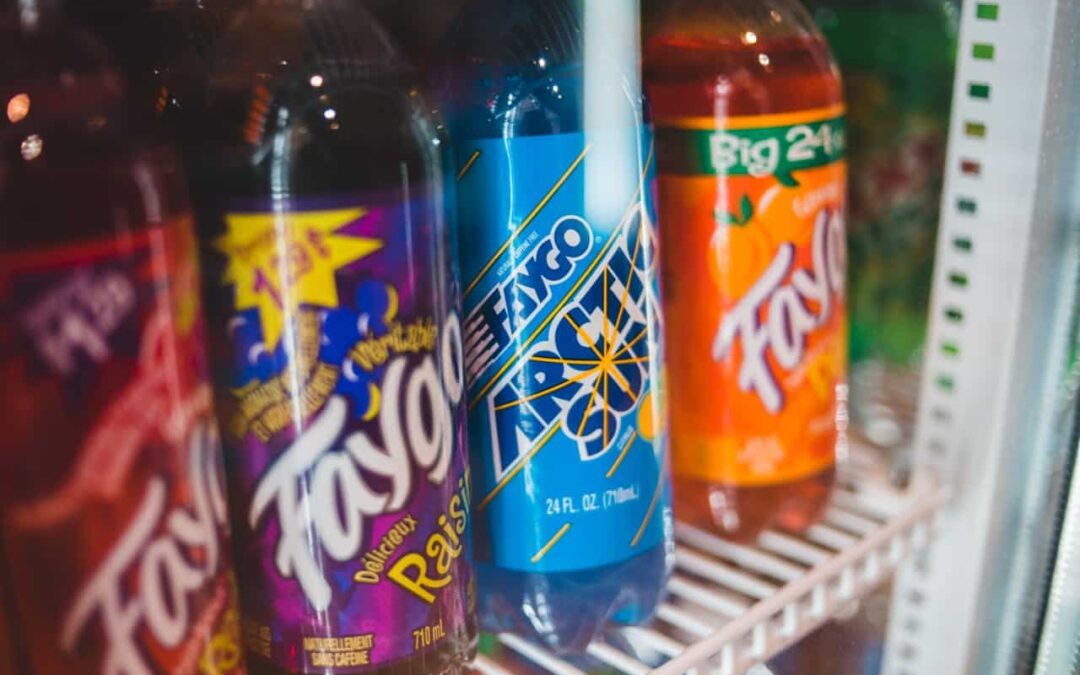
That One Time in Michigan: When immigrant brothers turned frosting recipes into Faygo
Where did Michigan’s most iconic pop get its start? Take a trip down memory lane to learn more about Faygo—and don’t be surprised if you’re thirsty...


